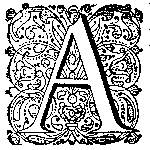News, Neighbours, and Commerce: Newspaper Advertising in the Information Culture of the Dutch Republic
DOI:
https://doi.org/10.18352/emlc.64Keywords:
newspapers, Dutch Republic, advertising, public announcements, plague, crime, markets, almanacsAbstract
The Dutch did not invent the newspaper – their genius lay, as in so many aspects of industry, in the refinement of the mechanisms of production and sale so as to maximise efficiency and profits. One of their imaginative contributions was the early adoption of paid advertising. The first advertisements appear in Dutch papers within years of their establishment, and by the middle of the century, many tradesmen and professional groups were beginning to recognise the benefit of using the newspaper to advertise their goods and services. Increasingly, too, the advertisements were mingled together with various sorts of public announcements, placed either by official bodies or private citizens: the notification of an upcoming market, appeal for help in the search for a missing child or fugitive servant, the offer of a reward for the return of lost or stolen goods. This article focuses on these public announcements; more specifically, it investigates the contribution made by newspaper advertising to the domestic information culture of the Dutch Republic.
Downloads

Published
Issue
Section
License
Copyright (c) 2018 Andrew Pettegree, Arthur der Weduwen

This work is licensed under a Creative Commons Attribution-NonCommercial 4.0 International License.





